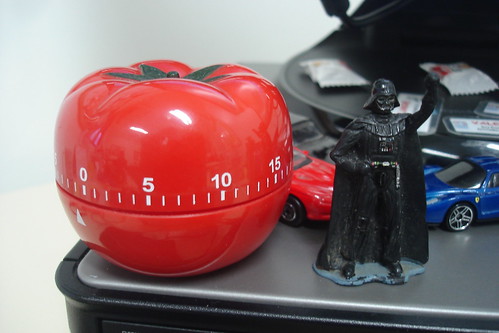
According to the Myers-Briggs personality test, I am an INFP, often called the “dreamer.” This means that I possess a deep inner world concerned with emotions and concepts of “right and wrong,” that I have an often paralyzing sense of perfectionism, and a damn fine set of blinders. As this relates to chores, if I have no idea where to put one thing in the pile of clutter in the bedroom, I won’t touch the rest of the pile either. As for the blinders, certain things must be maintained (like a project, or perhaps my journal) according to my standards, but the rest of the house might be complete disarray. And there are times when I don’t even notice the chaos.
I always just thought I was weird, but then when I started reading about my Myers-Briggs personality type, things started to make sense to me.
I had to overcome these two obstacles, the perfectionism and the blinders, if I was ever going to hope for a clean(ish) house. Easier said than done, of course, but there are a few tools that I use to keep things somewhat orderly.
Set the timer
The first tool is the timer. I set it and just start going. At first this seemed silly to me, because there was NO WAY that I was going to get the room clean in 15 minutes, so why bother? To some other personality types, this type of thinking is RIDICULOUS. Once I sat down and thought about my own processes, it was RIDICULOUS to me, too. But I had to train myself to think that way consistently. So now, if I have an hour to spare (har har), I can spend 10 minutes in 6 different rooms, or 15 minutes in 4 different rooms, whatever. And things get “clean enough for now.”
Follow the schedule
I also set a schedule for cleaning, where each day there’s an area of the house that I’m (supposed) to clean. My list is written on a scrap piece of paper with blue crayon. Mondays are reserved for what we call the “blue room,” Tuesdays are for the dining room, Wednesdays are for the living room, Thursday is for the bedrooms, and Friday is for the bathrooms. The rest of the house is in my blinders! And instead of feeling overwhelmed by the inevitable disaster left behind the tornado that is my toddler, I am able to step outside the old thought processes and start over.
This system doesn’t work perfectly, but it’s a big improvement for me! It has been freeing, learning that my old thought patterns don’t have to continue and that I can change them. This is helping with my house-cleaning habits AND other parts of my life. For instance, being all-consumed with what’s in my head doesn’t actually build relationships with others, and learning to deal with others’ senses of right and wrong is healthy for my own sense of ethics. Does everything get done exactly how I want? No. But it gets done enough for now.


I’m INFJ too! When we first got married I drove my husband absolutely bonkers with my blinders. He didn’t get how I could just “not see” the dishes overflowing from the sink all over the counter or the piles of clean cloths that never managed to get folded or put away when I have to have the fridge precisely organized and my hair products in a certain place in their basket.
Making a schedule was a big help. (It’s hanging on the fridge right now in fact) I do 2-3 things a day (when I don’t have work) for 30 minutes to an hour each. Then once a week we have wipe-down-all-surfaces-and-put-everything-back-where-it-goes-day whether I think the house needs it or not. And usually once we get started the blinders lower so I see just how messy the place really is and go to town. It’s not a perfect system but we haven’t had an argument about cleaning since I made the schedule so something’s working.
Just read this and all the comments and I feel a lot better about myself knowing that I’m not the only one that has the perfectionist/blinders duality approach to cleaning. One major problem I have is not knowing what to do with an item and ignoring it (and the whole pile).
As I read everything, I was like hmm… I don’t remember which 4 letter personality I have but I sure can relate to what all of these people are saying. Then I went and checked and I’m an INFJ. Either way, I’m going to go buy a timer online right now.
I have struggled for years with the fact that I can’t keep things clean. I’ve wondered what on earth is wrong with me. I’ll get hooked on a book and forget completely that my house exists or find something intriguing to learn about and when I’m done, 3 hours have gone by. I don’t have ADHD. I know how to clean. Sometimes, I’m actually really good at it. But other times, as you said, if I don’t know where one part of a pile goes, it will sit and sit until I finally FORCE myself to deal with it. So, I found this quote on a website about INFP and realized that this explains me. “When something captures INFPs’ imagination, they can neglect practical matters like day-to-day maintenance and simple pleasures.” And there we have it, folks. Came here to try to learn how other INFPs deal with this.
Thought you all would enjoy the MBTI Cleaning Squads. It’s hilarious, but totally accurate based on the MBTIs I know. I’m INTJ. I’m on the “all or nothing. Either we’re not cleaning and it’s a mess or we’re cleaning everything ‘squad’.” LOL! Too true.
Here’s the link: https://s-media-cache-ak0.pinimg.com/originals/5c/84/3e/5c843ef4362868b16731d0d8cfee310b.jpg